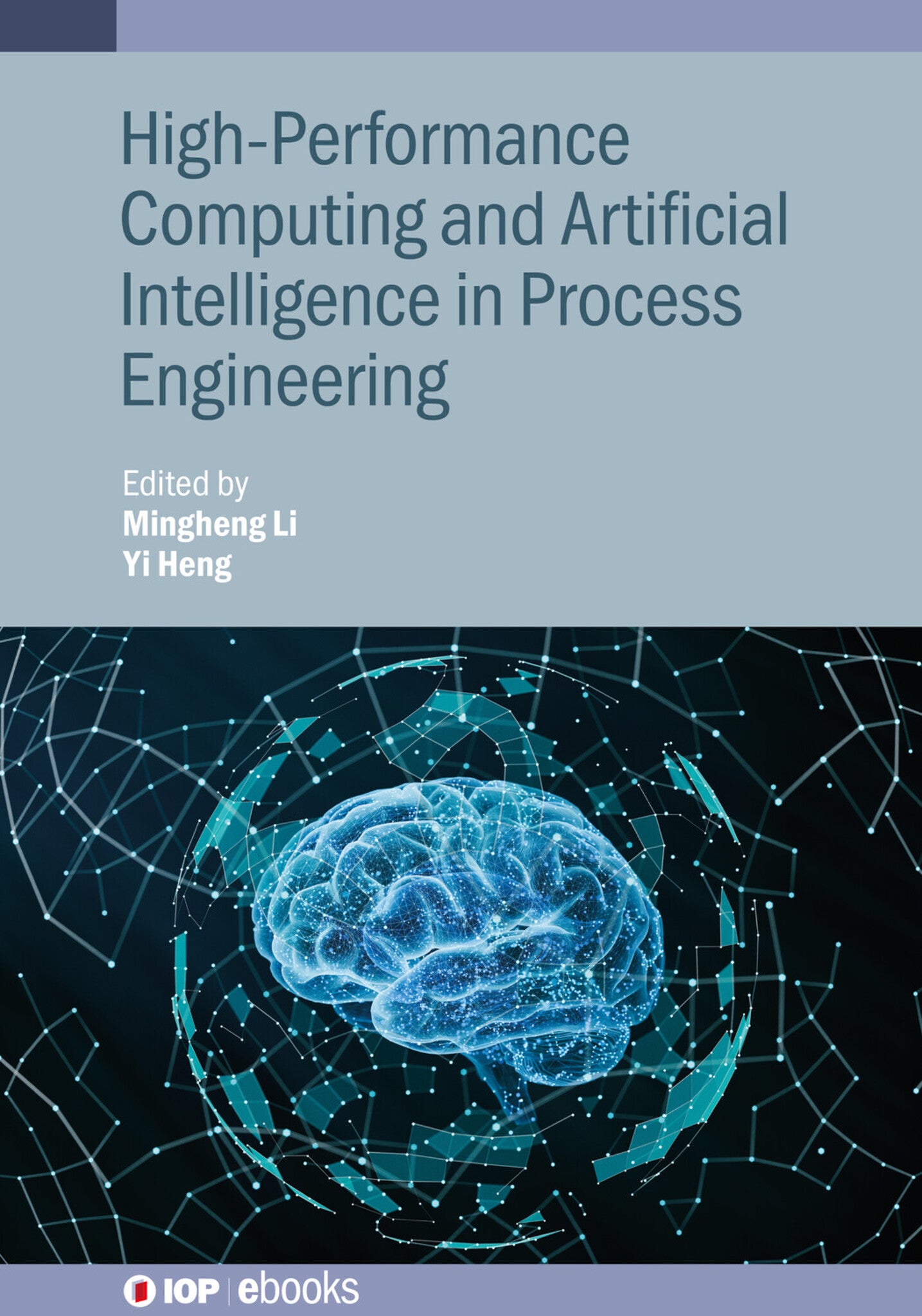We're sorry. An error has occurred
Please cancel or retry.
High-Performance Computing and Artificial Intelligence in Process Engineering

Some error occured while loading the Quick View. Please close the Quick View and try reloading the page.
Couldn't load pickup availability
- Format:
-
04 April 2025

High-performance computing (HPC) and artificial intelligence (AI) in process engineering involve complex system modelling, data analysis, optimization design, and real-time monitoring. Key methods include data integration, model construction, optimization algorithms, machine learning, deep learning, parallel computing, and real-time analytics. These techniques significantly enhance production efficiency, reduce costs, and improve system stability. They also promote industrial intelligence, creating new opportunities and challenges in process engineering. This integration supports the advancement of Industry 4.0 and smart manufacturing.
Key Features:
- Provides a systematic review of state-of-the-art artificial intelligence technologies and high-performance computing, and their applications in process engineering
- Introduces the development of traditional process simulators in process engineering and new numerical solvers based on data-driven and physics-informed neural networks approaches
- Provides perspectives of high-performance computing and artificial intelligence from industrial leaders in software and hardware
- Aimed at researchers and industrial practitioners in process engineering, manufacturing, data science, artificial intelligence and high-performance computing

TECHNOLOGY & ENGINEERING / Manufacturing, Production and industrial engineering, COMPUTERS / Artificial Intelligence / General, TECHNOLOGY & ENGINEERING / Technical & Manufacturing Industries & Trades, Artificial intelligence, Industrial chemistry and manufacturing technologies

We acknowledge the support of the National Science Foundation (CBET2140946 for ML) and the Key-Area Research and Development Program of Guangdong Province, China (No. 2021B0101190003 for YH), whose funding made this work possible
Chapter 1: Artificial intelligence and the future of process engineering
Chapter 2: Machine learning in optimal control and process modeling
Chapter 3: Graph-based control invariant set approximation and its applications
Chapter 4: Machine learning-based multiscale modeling and control of quantum dot manufacturing and their applications
Chapter 5: The rise of time-travelers: are transformer-based models the key to unlocking a new paradigm in surrogate modeling for dynamic systems?
Chapter 6: Optimization-based algorithms for solving inverse problems of parabilic PDEs
Chapter 7: Deep learning-based approach for solving forward and inverse partial differential equation problems
Chapter 8: An active subspace based swarm intelligence method with its application in an optimal design problem
Chapter 9: Supercomputing and machine-learning-aided optimal design of high permeability seawater reverse osmosis membrane systems
Chapter 10: Supercomputing-based inverse identification of high-resolution atmospheric pollutant source intensity deistributions
Chapter 11: Enhancing boiling heat transfer via model-based experimental analysis



